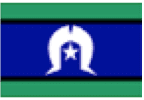A new report looking at Centrelink debts and domestic violence, confirms what SSRV have been seeing in our family violence work.
The report, ‘Debt, Duress and Dob-Ins’ found that victim survivors of domestic violence, who are usually women, are frequently unfairly held solely responsible for social security debts in situations where the debt was the direct result of their partner’s or ex-partner’s threats, economic abuse, physical violence and coercion.
Economic Justice Australia (EJA) found many examples where victim survivors’ debts are clearly the direct result of the actions of perpetrators.
A common scenario is where an abusive partner provides inaccurate information about their income, leading to inaccurate assessment of eligibility and payment rates – often over a protracted period.
In other cases, victim survivors have been forced to provide false information to Centrelink by violent and controlling partners, with threats of violence in retaliation if they contact Centrelink to rectify assessments or leave the relationship.
SSRV provides legal services to victim survivors who have experienced economic abuse in relation to payments from Centrelink in a variety of ways, and these also include:
– People who have been coerced by their partners into applying for a Centrelink payment which they are not eligible for, and
– People who have had no knowledge of a Centrelink application having been lodged in their name, and who have never received payments, but are then subject to an over payment/debt.
The ongoing duress experienced by victim survivors trapped in these situations can result in massive debts.
A common thread in the Centrelink debts examined in the report are the result of Centrelink assessing a victim of domestic violence to be a ‘member of a couple’.
The single rate of payment is more than half the couple rate, based on the idea that the cost of living is lower for two people living as a couple than it is for two single people, and that the income and assets of both members of a couple should therefore be taken into account when working out how much they are entitled to receive.
“Our report shows that women experiencing domestic violence continue to be assessed as being a member of couple for the purposes of social security law,” said EJA Executive Officer, Leanne Ho.
“This effectively tethers the women and their children to their abuser, even in circumstances where income is not shared between the couple.
“It also enables Centrelink compliance rules and mechanisms, including the anonymous ‘Fraud Tip-off Line’ to be used by abusers as a tool of harassment, abuse, control and revenge”.
‘Debt, Duress and Dob-Ins’ makes 27 recommendations that could reduce the risk of victim survivors of domestic violence being pursued to repay unfair Centrelink debts, and ensure that the social security system can play its vital role as a safety net for women to escape domestic violence.
How to get help from SSRV or refer someone to SSRV
SSRV can provide advice for people who have a Centrelink problem and who have been affected by economic abuse. We can also provide information and support to workers who are assisting victim survivors of economic abuse.
For individuals experiencing economic abuse who want legal advice about related social security issues: al Call our Legal Assistance Line on 03 9481 0355, Monday to Friday, 9am to 5pm. If you can’t call us, you can email your request for assistance to info@ssrv.org.au
Workers wanting to speak to a social security lawyer about issues their clients are experiencing can call our Worker Help Line on 03 9481 0655, Monday to Friday, 9am to 5pm. You can also refer your client to us by emailing their information and details to info@ssrv.org.au
Debt, Duress and Dob-ins: Centrelink compliance processes and domestic violence, is the report of a research project in partnership between Economic Justice Australia, the University of Wollongong, the University of Sydney and the University of Queensland.




